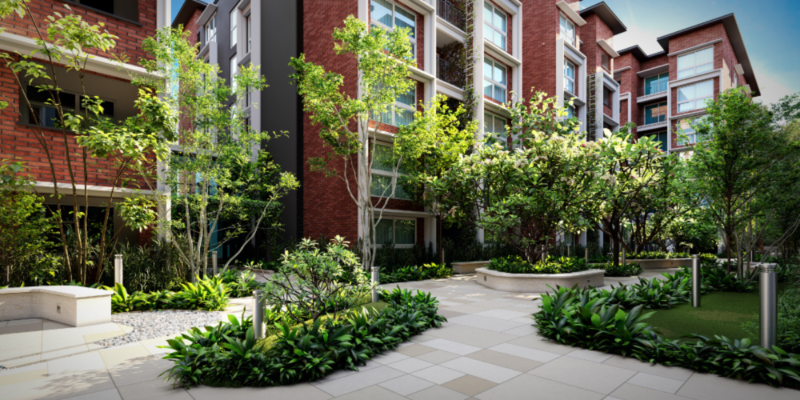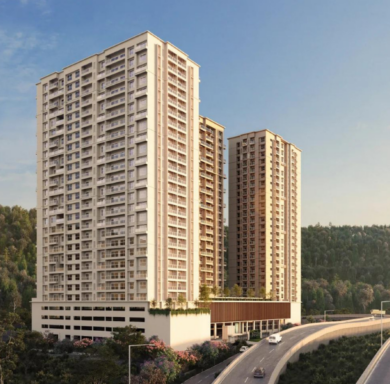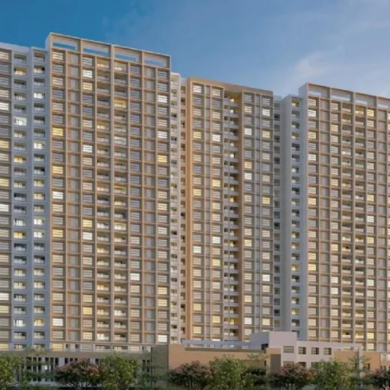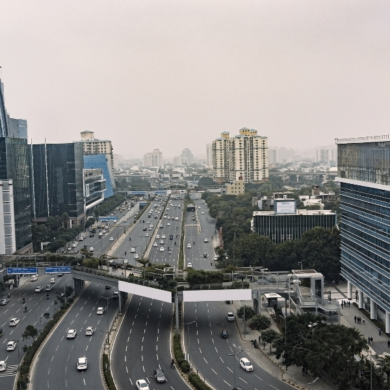
NRIs buying flats in Chennai should understand legalities, verify property titles, adhere to RBI guidelines, use an NRE / NRO account for transactions, obtain required permits, and seek legal counsel for a smooth, legally compliant purchase.
As the city continues to thrive as a hub of culture, opportunities, and commerce, NRIs are increasingly recognising the potential of owning property in this South Indian metropolis. The Chennai real estate market has witnessed growth and diversification, making it an attractive prospect for settling down or investing.
Through this blog, we aim to empower NRIs with the knowledge and insights required to navigate the complex landscape of property acquisition – from understanding the legal procedures and regulations specific to foreign buyers to deciphering the financial intricacies involved.
Table of Contents
Understanding Chennai’s Real Estate Market
Chennai has a plethora of real estate investment options, making it a sought-after destination for both investors and residents. As a prominent city in South India and the capital of Tamil Nadu, Chennai offers cultural richness and economic vibrancy. The city is a magnet for buyers and investors; Chennai is renowned for its expansive urban coastline and thriving automobile industry.
While deciding on a locality for real estate investment, it’s essential to consider several factors, such as the amenities and other services. Recent reports indicate an anticipated 5.5-6.5% increase in real estate prices in Chennai. This surge benefits buyers, as apartments, villas, and rowhouses are appreciating swiftly.
The rising need for luxury housing and the IT-ITES sector’s substantial office space requirement are expected to bolster demand for commercial real estate in Chennai. The ongoing improvement in Chennai’s infrastructure will enhance its appeal to investors & homeowners.
Understanding NRI Eligibility for Buying Flat in Chennai
Understanding NRI Eligibility is essential for those looking to buy flats in Chennai. Non-resident Indians are eligible to invest in residential and commercial properties in India. To meet the eligibility criteria, one must have a residential status as per the FEMA act, which means they should be of Indian origin and residing abroad for business, employment, and other purposes.
Property Ownership Differences between PIOs & OCIS
It is essential to differentiate between the Overseas Citizens of India (OCIs) and Persons of Indian Origin (PIOs) while considering property ownership. PIOs – Indian-origin individuals or their descendants – get property ownership rights like NRIs. OCIs, granted to foreign nationals with Indian heritage, have even more extensive property ownership rights. They can purchase properties in India without seeking permission. Understanding these eligibility criteria is vital for NRIs looking to invest in apartments in Chennai.
NRI Property Types and Ownership Rights
NRIs can invest in different properties – including residential, commercial, and agricultural. That means one can buy a flat in a bustling Chennai neighbourhood and invest in or even acquire agricultural land, depending on the investment and preferences goal.
The acquisition process should adhere to the guidelines set by FEMA and RBI. NRIs can directly buy properties without any special permission, but when it comes to agricultural land, there may be some specific state permission for such purchases.
NRI’s Financial Aspects of Buying Property in Chennai
-
Passport or PIO Card:
An NRI looking to invest in real estate in Chennai needs to show their Indian passport. A Person of Indian Origin (PIO) will have to show their PIO card or might even have an OCI (Overseas Citizenship of India) card, which they can use to get their documents approved. Those who do not hold these cards can visit the Indian embassy to apply for them.
-
PAN Card:
A PAN card is necessary to buy or sell any property in Chennai, as PAN is essential for tax deductions. NRIs can submit Form 49A online through the UTI or NSDL websites to apply for a new PAN card.
-
Property-Related Documents:
Several crucial documents are necessary for any real estate investment. These documents are even more critical if a buyer seeks a home loan. After submitting the home loan application, a review panel will examine all the documents to ensure their validity. Here is a checklist of essential property documents one needs to have:
- Title Deed
- Updated Encumbrance Certificates
- Building Permit
- NOC
- Approved Plan
- Title Deeds from the last 15 years
-
Power of Attorney Papers:
Power of Attorney empowers a buyer to engage in real estate investments in India without the necessity of their physical presence throughout the proceedings. A buyer can delegate authority to someone in India to act on their behalf, under the framework of the Power of Attorney Act.To execute this, the buyers must endorse the document on stamp paper in a local lawyer’s presence in their country. After the document’s attestation, it is imperative to dispatch it to India within three months for adjudication. The appointed attorney will undergo registration at the registrar’s office, thus concluding the entire procedure.
Property Registration for NRIs
In India, property or land registration is governed by the Registration Act of 1908. The act was implemented to ensure proper maintenance of information related to all properties across the country. According to this act, any land or property in India can be registered by NRIs and Indian residents. Any person of Indian origin who has an Indian passport or whose parents or grandparents were from India can also buy a property under this act.
The Step-by-Step Process for Property Registrations for NRIs in India
Registering property in India for NRIs is more straightforward than commonly perceived. Physical presence in India is not required. Instead, NRIs can establish a Power of Attorney in favour of a trusted individual in India. This document should be authenticated at the nearest Indian Embassy and sent to the designated person for execution.
8 Steps of Property Registration Process in Chennai
-
Verification of the Title of Property
When NRIs wish to acquire land or property, the current owners must furnish the requisite documents as evidence of their genuine property ownership. In cases where properties are bought from third parties, the process may slightly differ, necessitating verification of ownership from the original titleholder to the present owner.
-
Estimating the Property Value
Accurately estimating a property’s value, contingent upon its location and type, becomes imperative by gauging the prevailing market trends. This valuation is crucial for computing the stamp duty owed during property registration.
-
Preparing the Stamp Papers
NRIs or their authorised representatives must acquire non-judicial stamp papers in alignment with the estimated property value and the corresponding stamp duty. These stamp papers can be procured through online platforms or licensed stamp vendors.
-
Preparing the Sale Deed
The subsequent step involves drafting the sale deed, commonly undertaken by an attorney acting on behalf of NRIs purchasing the property. The sale deed’s specific contents fluctuate depending on the precise nature of the property being acquired.
-
Paying Stamp Duty & Registration Charges
After the stamp papers are prepared, the subsequent phase entails the payment of the applicable Stamp Duty and Registration Charges to facilitate the property’s registration.
-
Approval of Sub-Registrar
NRIs or their representatives need to visit the sub-registrar’s office in the city where the property is to be registered. This visit necessitates the presence of two witnesses carrying valid identification proof, along with the sale deed, for registration.
-
Submission of Required Documents
In addition to the sale deed, NRIs may be required to submit supplementary documents, typically obtained from the sub-registrar’s office. These documents generally include copies of valid identification cards, No Objection Certificates (NOCs), and other pertinent records.
-
Collect the Document of Registration
The registration process concludes after meticulous verification of all documents, permitting NRIs or their representatives to obtain the registration documents.
NRI’s Financial Aspects of Buying Flat Property in Chennai
Meticulous financial planning is vital when buying a property in Chennai as an NRI. Start by determining a clear and realistic budget for your flat purchase. Consider the property cost and associated expenses like registration fees, taxes, and maintenance. Indian banks offer home loans to NRIs, which simplifies the buying process. These loans typically cover up to 80% of the property’s cost.
Loan approval often depends on income, credit history, and property type. Interest rates may vary, but generally range from 7% to 9%. A good credit score can improve the possibility of home loan approval at favourable interest rates.
Taxation and Repatriation
NRIs must be aware of the tax implications in property transactions. In India, rental income from property is taxable. Also, property sales are subject to capital gains tax, which are either short-term or long-term – both with different tax rates. NRIs may also benefit from Double Taxation Avoidance Agreements (DTAA) if they reside in a country with which India has such an agreement.
Repatriation Process
NRIs can repatriate funds invested in India. However, there are specific guidelines and limits set by RBI for this. It is necessary to maintain a dedicated NRI bank account; any repatriation requests should follow RBI regulations. Proper documentation and certification from a Chartered Accountant are typically required.
Currency Exchange and Investment
For NRIs eyeing property investments in Chennai, managing currency exchange is pivotal. Converting foreign currency into Indian Rupees is a fundamental step. Indian banks and authorised dealers can help with this process.
Keep an eye on exchange rates and be aware of the FEMA regulations, as fluctuations in exchange rates can impact the investment’s value. To mitigate these risks, consider strategies like forward contracts or options to fix the exchange rates.
Diversifying the investment portfolio across different assets can help spread risk. Consult with a financial advisor experienced in NRI investments, to develop a strategy that aligns with your financial goals and risk tolerance.
FEMA Regulations for NRIs
Foreign Exchange Management Act (FEMA) is a set of Indian laws that regulate foreign exchange and payments. In the context of property transactions, FEMA permits NRIs to buy residential and commercial real estate in India, but certain conditions must be met. These conditions cover the type of property, source of funding, and more. NRIs must adhere to FEMA guidelines when repatriating sale proceeds or rental income from their Indian properties.
FEMA ensures transparency and legality in NRI property investments. The property must be purchased in Indian currency and from a dedicated NRI bank account. There are restrictions on selling agricultural land and certain types of property.
- With effect from 17 October 2019, chapter IX of FEMA Rules deals with immovable property purchase, gift, sake, inheritance, remittance-related regulations in India by a person residing outside India, i.e., NRI, OCI, foreign entity, foreign exchange.
- PIOs need to seek RBI approval before buying a property. Alternatively, they need to apply for an OCI card first, to keep themselves in the general permission category (same as NRIs and OCIs).
- NRIs / OCIs can buy properties in India out of their NRE, NRO, or foreign funds
- Frequent and multiple purchases and sales of immovable property in India may lead to violation of RBI regulations
- Long-term visa holders from minority communities in Bangladesh, Afghanistan and Pakistan can acquire one property for residence
Rental Income and Property Management
Generating rental income is crucial for NRIs looking to invest in flats in Chennai. Renting out the property can provide a steady revenue stream and help offset ownership costs. Listed below are the guidelines on renting out the property and repatriation.
- Local Regulations: Familiarise yourself with Chennai’s rental laws and regulations to ensure compliance.
- Tenant Screening: Carefully vet potential tenants to minimise risks. Background checks and references are essential.
- Rental Agreement: Draft a comprehensive rental agreement that covers terms, rent amount, security deposits, and more.
- NRE / NRO Accounts: Open these bank accounts to manage your rental income and quickly repatriate funds if needed.
- Taxation: Understand the tax implications in India and in your home country, in order to minimise liabilities.
Tips for Managing the Property Remotely
- Execute a Power of Attorney to manage the property in India. A trusted person can execute deeds on behalf of the buyer, and be the single point of contact for all communication, updates, and queries.
- Use property management software to streamline daily operations from a distance
- Create a comprehensive rental agreement that is clear and effective. Many property management software providers allow owners to sign and send it electronically, which makes it convenient for NRIs.
- Stay in touch with service suppliers, property managers, and tenants for smooth communication. Use technology such as email, video conference, or messaging apps to handle any concerns.
- Employ a well-known NRI property management services provider who will handle recurring tasks such as collecting rent, locating and vetting tenants, and supervising maintenance. They will serve as your on-the-ground eyes and ears to keep you updated on the properties you own.
Choosing the Right Location Before Buying a Flat in Chennai
Selecting the ideal location for your flat investment in Chennai is crucial for a successful venture. Here are vital factors to consider:
Desirable Neighbourhoods
- Adyar: Known for its serene ambience and proximity to the beach, Adyar offers a peaceful living environment with upscale residential options
- Nungambakkam: A bustling commercial and residential hub, Nungambakkam boasts of fine dining, shopping, and excellent educational institutions
- OMR (Old Mahabalipuram Road): A tech corridor, OMR offers high rental potential due to its proximity to IT parks and business centres
Proximity to Key Amenities and Infrastructure
- Transport Links: Ensure easy access to transportation hubs like the Chennai International Airport, major railway stations, and metro lines
- Educational Institutions: Consider local schools, colleges, and universities to benefit families and students
- Healthcare Facilities: Access to quality hospitals is vital; locations near major medical centres are advantageous
Market Trends in Various Localities
- Central Chennai: Established areas like Mylapore and T Nagar have stable property values
- South Chennai: OMR and ECR are witnessing increased demand and appreciation
- West Chennai: Porur and Pallikaranai offer affordability and growth potential
Property Selection and Due Diligence
It is a vital step for NRIs. Buying Flats in Chennai as an NRI necessitates careful property selection and thorough due diligence. Here are the considerations:
4 Factors to Consider When Selecting a Flat in Chennai
-
Location:
Assess the neighbourhood’s suitability for your lifestyle and investment goals, considering proximity to work, schools, and amenities
-
Budget:
Define the budget clearly, which includes the property cost, registration fees, taxes, and other costs
-
Builder Reputation:
Research the developer’s track record, project delivery history, and reputation in the market
-
Property Size and Layout:
Choose a flat that fulfils your needs, considering the size of your family and future growth
Inspecting Properties Remotely or During Visits
-
Site visits:
Make physical visits to shortlisted properties, to learn about the location, quality, and surrounding environment
-
Take Virtual Tours:
Many developers offer virtual property tours, which allow buyers to inspect flats remotely
-
Local Contacts:
Leverage real estate agents for insights on property conditions and market dynamics
Verify the property’s ownership and legal history to ensure there are no pending dues, disputes, or encumbrances. Get confirmation that the project has obtained the necessary government approvals and permits. Ensure the sale deed is legally sound and accurately reflects the terms of your purchase. The lender will conduct due diligence to provide an additional layer of security. Prioritising due diligence while buying a flat in Chennai is important for NRIs.
Legal and Financial Experts
Purchasing a flat in Chennai as an NRI involves navigating complex legal and financial aspects. For a seamless investment, enlisting the services of experts is highly recommended. They specialise in the intricacies of real estate transactions, ensuring you make informed decisions and avoid potential pitfalls.
Role of Real Estate Agents and Legal Advisors
Knowledgeable local real estate agents are invaluable in helping you find the right property, negotiating deals, and understanding the local market dynamics. They bridge the gap between you and the property, making the process more efficient. Legal experts can conduct due diligence, verify the property titles, and ensure compliance with local laws. They provide essential protection against legal risks, assuring you that your investment is legally sound.
Property Maintenance and Management
Owning a flat in Chennai as an NRI comes with the responsibility of adequate property maintenance and management, even from abroad.
-
Digital Tools
Leverage technology for remote property management; use apps and software for rent collection, maintenance requests, and tenant communication
-
Local Contacts
Maintain a network of local contacts, including trusted friends or relatives who can assist in emergencies or routine checks
-
Professional Property Managers
They handle tenant selection, property maintenance, and rent collection on your behalf
-
Maintenance Crew
Ensure a reliable maintenance crew is in place to promptly address repairs, reducing tenant turnover.
Understanding the Rental Market for Potential Income
-
Market Research
Stay updated with the latest market trends in Chennai, including rental rates, demand in various areas, and tenant preferences
-
Pricing Strategy
Set competitive rental rates to attract quality tenants, while ensuring your property generates a steady income
-
Legal Compliance
Abide by the local rental laws & regulations, understand tenant rights & obligations, and maintain accurate records for tax purposes
Navigating Cultural and Local Differences
For NRIs purchasing flats in Chennai, understanding and respecting cultural & local differences is crucial for a smooth real estate experience:
-
Cultural Nuances in Real Estate Transactions
Be prepared to respect and observe local traditions, customary rituals, and ceremonies – which can foster goodwill. Chennai’s real estate market places a high premium on trust and personal connections.
-
Working with Local Contractors and Vendors
When hiring these, seek references and verify their work. This practice ensures you work with reputable and reliable professionals. Ensure that all agreements are in writing, detailing the scope of work, costs, and timelines. Legal clarity is essential in any business transaction.
Tips for Effective Communication and Negotiation
-
Local Liaisons
Utilise the services of local real estate agents or legal advisors who understand the local dialect, and can facilitate communication with sellers, contractors, and authorities
-
Cultural Sensitivity
Be respectful and mindful of cultural nuances in communication. Politeness, patience, and a willingness to listen go a long way in negotiations.
-
Research and Local Insights
Research Chennai’s real estate market thoroughly and stay informed about the latest trends. This knowledge empowers you in negotiations.
Final Thoughts
In this comprehensive guide, we have unravelled the intricacies of NRI flat ownership in Chennai. From legal and financial considerations to property selection, management, and cultural nuances, we have provided a secure and rewarding investment roadmap. With in-depth knowledge and expert support, NRIs can confidently navigate the dynamic Chennai real estate market.
Read More: NRIs Must know About Investing in Indian Real Estate
Contact Information
Reach us today to understand more about SOBHA’s luxury gated communities in Chennai, and to book a limited-edition luxury abode for your family. Reach us at [email protected] or call 08046464500. For more information, you may visit – Apartments for Sale in Chennai
FAQs
1. What is the procedure to buy a flat from NRI?
Procedure to buy a flat from NRI is similar to that from a citizen / resident of India. It involves selecting a property, conducting due diligence, obtaining necessary approvals, paying registration charges, registering the transaction with the Sub-Registrar’s Office, and completing the purchase process. You can consult with legal and financial experts, get a PAN card, and follow the Foreign Exchange Management Act (FEMA) regulations for fund transfers.
2. How can NRI buy an apartment in India?
An NRI can buy an apartment in India by following the same procedure as Indian citizens, but they need to comply with FEMA regulations and use NRE / NRO accounts for transactions, apart from adhering to specific tax and repatriation rules.
3. What to check before buying a flat in Chennai?
Before buying a flat in Chennai, check property titles, legal clearances, market trends, and the builder's reputation. Verify the property's location, nearby amenities, and your budget – in order to ensure a sound investment.
4. What is the TDS rate for NRI flats?
TDS rate for NRI flats is typically 20% of the capital gains. However, the Tax Deducted at Source on property transactions may vary, depending on the property's value and the applicable tax treaties.
5. How much tax do I pay on the NRI sale of property?
The tax on the NRI sale of property depends on factors like the property's holding period, type of property, and capital gains. Short-term gains are taxed at 30%, while long-term gains are taxed at 20%.
6. What documents are required for NRI buying property in India?
Documents required for NRI buying property in India are: 1. Valid passport 2. PAN card 3. Proof of address 4. Evidence of Indian origin 5. Financial documents, such as bank statements and a declaration under FEMA
7. What are the benefits of NRI buying property in India?
The benefits of NRI buying property in India are potential rental income, long-term appreciation, and a connection to their homeland. Investing in real estate in India is quite beneficial, with the advantage of owning a physical asset in a growing economy.










